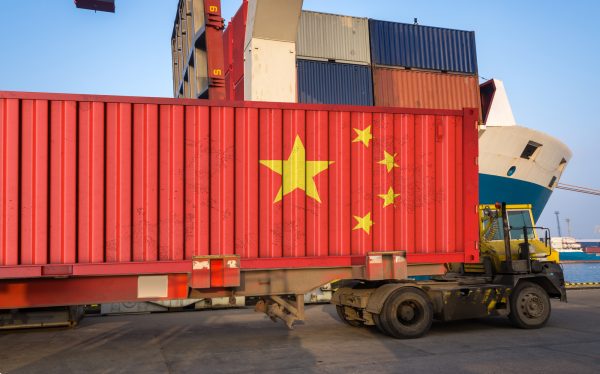
According to the Wall Street Journal, the Biden administration will soon announce tariff exemptions for some Chinese exports to the United States. This is the first time that the Biden administration has explicitly considered reductions of the Trump-era tariffs on Chinese goods, and the change reportedly comes due to domestic inflationary pressure. Tariff exemptions from Washington would be a rare positive sign in a time of heightened political interaction between China and the U.S., but the limited nature of such a signal should also serve as a reminder for China to prepare for future uncertainties in the global economic system.
Indeed, when the Biden administration signaled through media reports and official statements months ago that it would exempt tariffs for certain Chinese goods, it was a tacit admission that the United States had lost the years-long trade war with China. Since the Trump administration, the U.S. government has added extra tariffs on Chinese goods citing as reasons the large trade deficit, structural barriers against U.S. companies, and low purchases of U.S. goods by China. In recent years, however, more evidence has emerged that the trade war is bad for the United States itself.
China has not changed its trade behavior because of the U.S. measures. The trade war has not changed the structural fact that China and the United States have a huge trade deficit and mutual trade dependence. Data showed that the U.S. goods trade deficit increased by 18.3 percent to a record $1.1 trillion for the whole of 2021, while China remained the single largest deficit country with a trade deficit of $355.3 billion, accounting for 41 percent of the total. Although the deficit was lower than the record in 2018, it was 14.5 percent higher than that in 2020.
Meanwhile, the trade war does not “impose costs on China.” According to a 2021 study by Moody’s, more than 90 percent of the tariff costs in a trade war between China and the United States will be borne by the United States itself. Matthew R. Shay, president of the National Retail Federation, pointed out that U.S. Customs and Border Protection (CBP) has collected nearly $136.5 billion from U.S. importers since the tariffs went into effect in 2018, which has also significantly increased costs for U.S. consumers. The attempt at “punishing China” turned out to be punishing the U.S. itself.
So, with continued high inflation, business interests constantly asked the Biden administration to reconsider tariffs. Now the administration is reportedly going to provide partial relief. The Biden administration considers the lifting of some tariffs mainly as a way to respond to domestic dissatisfaction with the current high prices, especially with the pressure of the midterm election at the end of the year. According to a study by the Peterson Institute for International Economics (PIIE), a Washington-based think tank, if the Biden administration takes a series of steps to reduce or eliminate various additional tariffs currently in place, it could eventually reduce the U.S. consumer price index by 1.3 percent. Industry representatives have also been arguing about the benefits of reducing or eliminating high tariffs on China, leading Biden to actively consider some tariff cuts to try to show the White House is focused on tackling inflation.
However, the “tariff exemption” disclosed in the news is not a full tariff reduction for China, indicating that the Biden administration is still hesitating on the tariff issue and is anxious not to be interpreted as “showing weakness to China.” In the current political climate in Washington, even modest change to China policy are likely to be met with strong skepticism from both Republicans and Democrats, and tariffs are no exception. So the move, for now, is better interpreted as political action on a domestic issue.
Biden and the Democrats have shown no intention of making big concessions to China on trade. On the contrary, a group of China hawks, led by U.S. Trade Representative Katherine Tai, are pushing for greater scrutiny of economic and trade issues with China. As a result, the reported tariff exemptions, if they are made official, are merely the end of some of Biden’s previous policies, rather than a fundamental shift in his approach toward China.
In the face of the United States’ complex calculations on adjusting some of its tariff policies against China, Beijing should continue to base itself on promoting the development of the world economy, build more stable economic and trade ties with other countries, and gradually expand its business in other economic markets. Currently, China’s trade with countries along the Belt and Road is in a stage of rapid growth. Data show that between 2015 and 2021, China’s trade in goods with countries along the Belt and Road was worth about $9.17 trillion, with $1.8 trillion in 2021 alone, accounting for about 29.7 percent of China’s total trade in goods. China’s cooperation with countries along the Belt and Road in investment, infrastructure construction, new energy development, and poverty reduction is also deepening. Meanwhile, the Regional Comprehensive Economic Partnership (RCEP), which officially took effect this year, will greatly promote economic ties across the Asia-Pacific region.
When the United States, still stuck in its domestic policy struggle, refuses to cooperate with more depth with Beijing, China should pursue the international market more actively. At a time when multiple challenges are facing the current global economic, China should strongly support the development of the global economy and trade communication and coordination, with a more active attitude to respond to the confrontational narratives emerging from Washington.
Will Tariff Reductions Help China-US Relations?
Source: Frappler

0 Comments